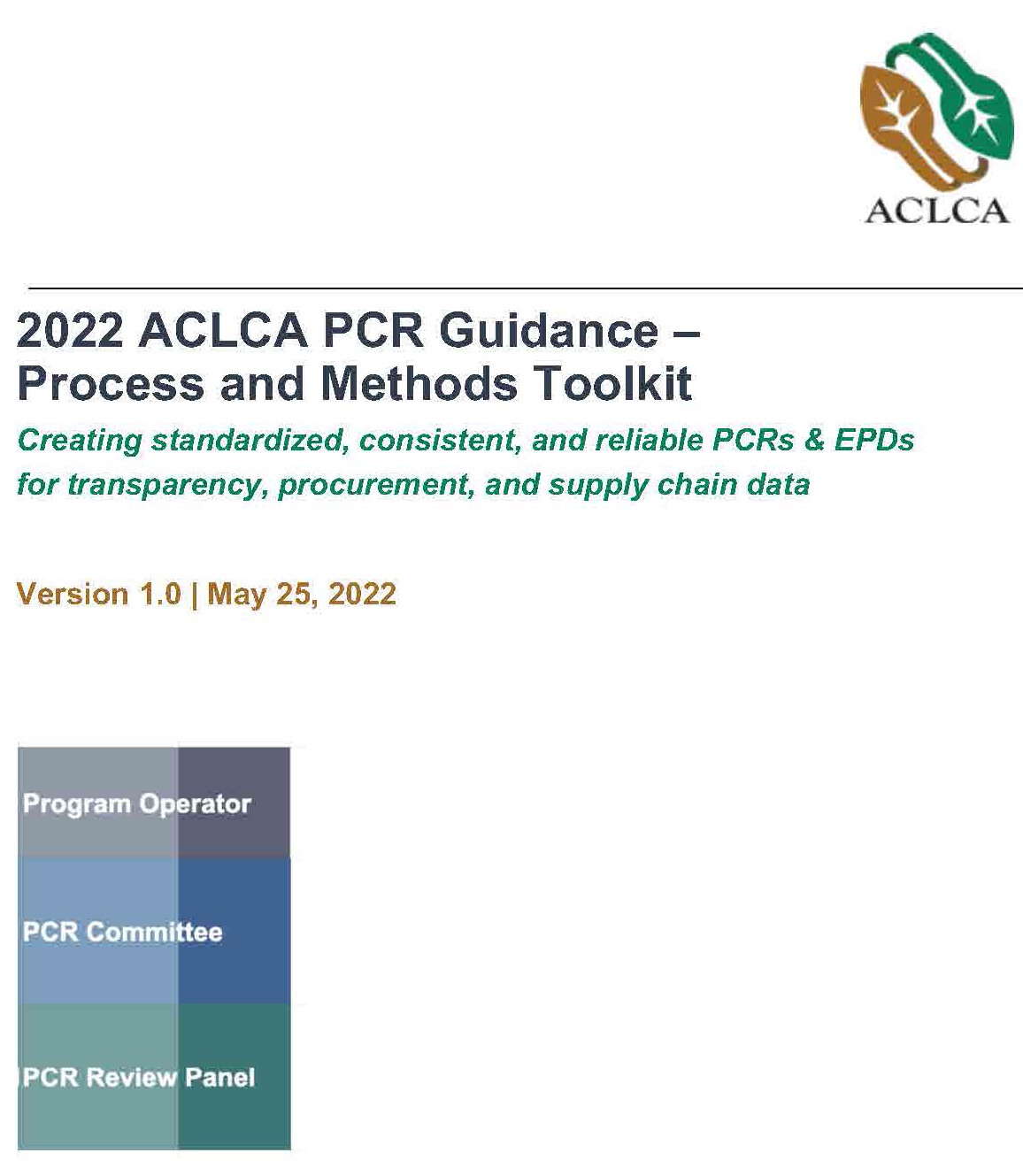Sources: American Center for Life Cycle Assessment, Washington, D.C.; CP staff
The “2022 ACLCA PCR Guidance – Process and Methods Toolkit: Creating standardized, consistent, and reliable PCRs & EPDs for transparency, procurement, and supply chain data” provides process checklists for each of the roles in product category rule (PCR) creation. A successor to charter 2013 guidance, the document features methods and methodologies addenda to raise the quality of PCRs and the environmental product declarations (EPD) they underpin.

The American Center for Life Cycle Assessment (ACLCA), toolkit developer, cites increasing demand for using EPDs to communicate products or processes’ environmental impacts and inform design and public procurement. Most notably, officials at federal, state, and local levels are enacting Buy Clean policies that stipulate EPD submittals in contract requirements. The policies promote the use of construction materials with lower embodied carbon emissions, while advancing life cycle thought processes.
Public and private construction market demand for declarations requires an organization like ACLCA to take “A systems approach, beginning with how environmental data is created specifically for the intended reporting use, through how to deliver it in tools that help make better decisions,” says Terry Swack, managing editor of the ACLCA PCR Guidance & EPD Comparability working group and CEO of Sustainable Minds, an EPD Program Operator. “It also requires a user-centered approach as there are many people involved in developing a PCR. For each role, we created a detailed checklist of tasks with the corresponding [International Organization for Standardization] ISO standard and deliverable to make it easy to confirm each has been completed. Effectively, this is a data quality assurance program. Program operators using this guidance to create PCRs will be assuring the creation of consistent and quality data. Quality data in means reliable results out.”
“As EPDs start being used in procurement, it is critical for the LCA profession that practitioners use a consensus based approach to standards of practice that ensure reliable, high quality EPDs,” adds ACLCA Executive Director Debbie Streckel. “ISO standards provide the conformance requirements. This toolkit supports practitioners in delivering conformant results. ACLCA’s goal is for all North American program operators to update their programs by adopting this toolkit. To that end, we are creating the Program Operators’ User Group to participate in the evolution of this work.”
Related article
Federal agencies trigger a third flourish for Environmental Product Declarations